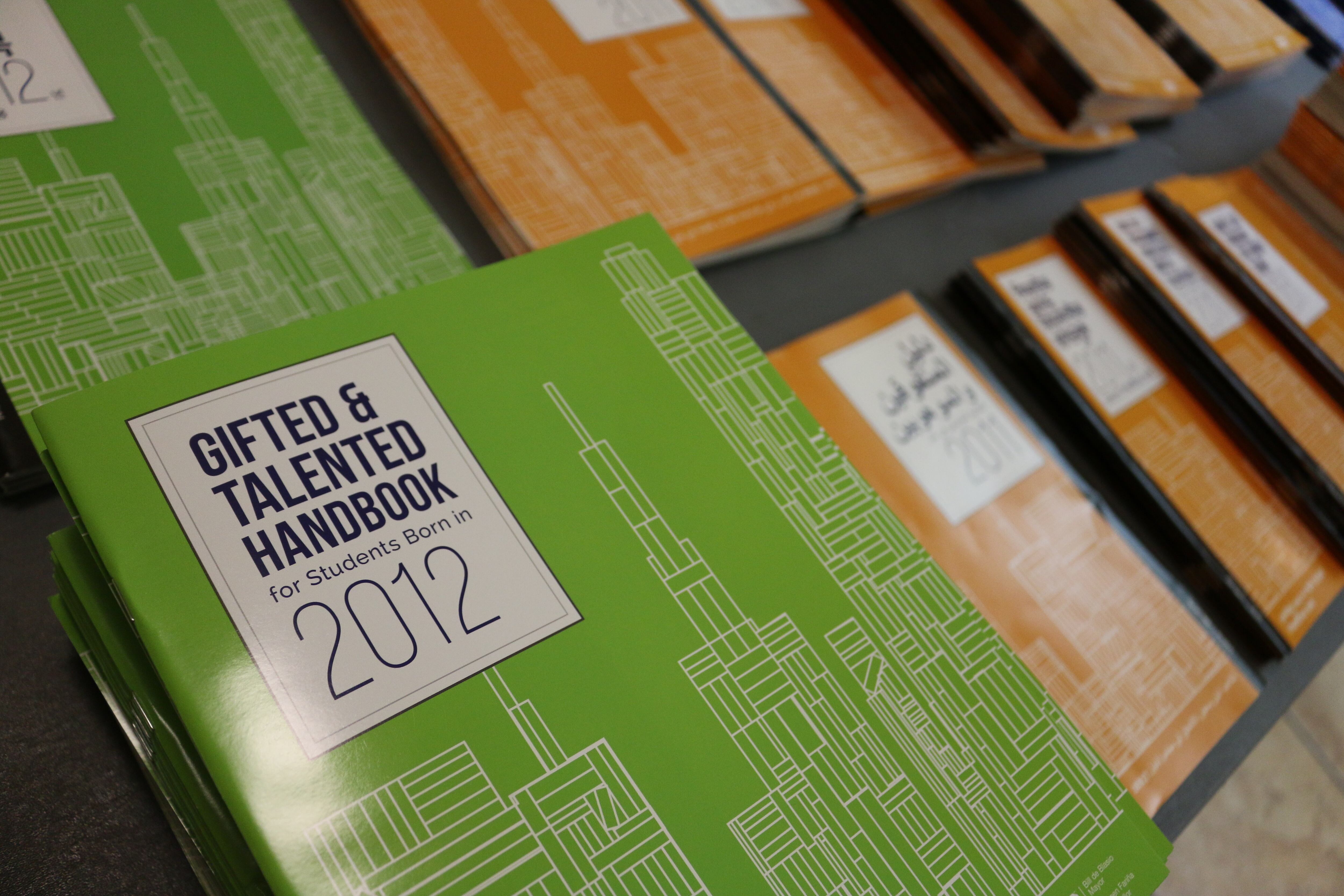Months before New York City Mayor Bill de Blasio decided to move forward with testing for the city’s gifted track, education department officials recommended suspending the controversial exam amid the pandemic.
In a draft memo from July, the Office of Assessment at the education department noted that COVID-19 has hit low-income communities of color disproportionately hard, and administering the test could deepen divides in an already segregated gifted and talented program.
“Testing during this time could exacerbate inequities for an admissions program that is widely known to have disparate outcomes by race,” according to the memo, which was obtained by Chalkbeat. “The difference in performance by racial and/or socioeconomic group could be increased by the impact of the pandemic, as students face loss of loved ones, loss of family income, food instability, etc.”
Education department officials said the memo was “one of many iterations of potential proposals and options considered.” They refused to say whether the mayor, who controls the school system, had seen it.
Earlier this month, de Blasio announced the city would move forward with the test this spring, while promising to explore options for reform in his final year of office.
“We have been clear that this decision involved many stakeholders and subject experts, and was considered carefully over the course of several months as the pandemic evolved,” education department spokesperson Katie O’Hanlon said.
New York City is one of the only school systems in the nation that grants admission to gifted programs based on a single test given to toddlers before they enter kindergarten. Many blame the exam for the stark underrepresentation of Black and Latino students, who make up almost 60% of all kindergartners citywide, but only 14% of enrollment in gifted programs. At 43%, the greatest share of students in gifted classes are Asian, and many families see the program as a ticket to higher performing schools. White students are also overrepresented at 36% of enrollment, and gifted programs are often credited with keeping white and middle class families enrolled in public schools.
The memo calls the city’s gifted programs “part of New York City’s legacy of opposition to school integration.” It was circulated Friday among members of the Panel for Educational Policy, the board that approves school contracts. The panel is set to vote Wednesday on a $1.7 million deal to administer the gifted exam. Some members have already stated publicly that they would vote against the deal, and the memo “sparked an immediate request” for additional briefings by education department leaders, said panel chair Vanessa Leung.
“I think folks are focused on this piece around, ‘Do we have an alternative option’ for, an ability to apply for a seat at this point,” she said of fellow panel members.
The memo does not offer alternate ways to identify gifted students this year. It recommends extending the testing contract, noting that the city doesn’t have an alternative in place, but that an extension doesn’t limit the city’s decision on “whether, how, or when” to administer the exam in subsequent years.
The memo calls the current test a “valid and reliable measure of students’ abilities.” But it questions whether offering the test in 2021 “accurately measures students’ abilities, as they have been undergoing stress, trauma, and extraordinary circumstances during the COVID-19.” The memo cites research that found students struggled with concentration and feelings of depression in the months after Hurricane Katrina. Funding for testing “could be redistributed to programs providing more essential services to students,” the memo states.
De Blasio has said the city will collect feedback from parents and educators about how to reform the gifted program in the future. O’Hanlon said the city’s plan “seeks to create real, lasting change that acknowledges the inequities of this current system without inflicting a last-minute change for families.”
The memo lays out a possible way forward, calling for universal gifted screening in second grade, using different tools to identify gifted students with disabilities and those learning English as a new language — groups dramatically underrepresented in the city’s current gifted programs. Rather than segregating “gifted” students in stand-alone classrooms or schools, it recommends offering additional services in more integrated settings.
“The underlying assumption of this recommendation is that there are gifted/advanced students in every school in NYC, and all schools should evaluate their own students in order to serve them appropriately,” the memo states.
Panel for Educational Policy member Shannon Waite said the detailed memo made the city’s arguments about the need to continue the use of the exam during the pandemic “disingenuous.” She planned to vote against the contract.
“In briefings, the impetus for this particular [testing] contract amidst COVID has been that… they have not been able to come up with a viable solution or plan,” she said. “And you can actually see from that document that they have a quite detailed plan in place.”





